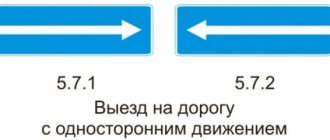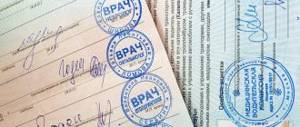What is this new law?
Actually, it's not new. It was developed 2 years ago by 2 deputies: Yarovaya and Morozov. But the draft Federal Law was postponed in June 2017 after its adoption in the first reading. And now in 2021 they returned to it and put it up for discussion.
This bill introduces an amendment to the Criminal Code of the Russian Federation, which the initiators propose to supplement with Article 1241. This article will provide for increasing liability for the fact that the driver of a civilian vehicle does not give way to an ambulance, depending on the consequences that such violation of traffic rules led to:
- if failure to allow the ambulance to pass resulted in moderate health problems for the patient to whom the ambulance was traveling,
- if failure to give way to the road resulted in death or serious harm to the health of the patient.
Literally the text of the draft new law speaks of creating barriers to access to patients:
Obstructing the legitimate activities of a medical worker in providing medical care by restraining, threatening, creating obstacles to access a patient...
View the full text of the bill. It is also available on the official website of the National Medical Chamber and Consultant Plus.
Related articles:
- Do traffic police officers have the right to check a car sharing account on a smartphone and what are the consequences for this?
- Is it true or not that the fine for drunk driving will increase in 2021?
- New traffic regulations: The traffic police have prepared amendments and fines - is this true or not? When do they take effect?
Didn't miss the ambulance - lost my license
The State Duma Committee on State Construction intends to support tougher penalties for traffic violations against medical workers.
Car owners who do not allow an ambulance to pass will be deprived of their driver's license for a period of one and a half to two years. This measure can be applied in cases where the delay of doctors to the patient did not lead to negative consequences, Izvestia reports. If they occur (for example, the patient died), the driver will face criminal liability: punishment in the form of imprisonment for up to four years will appear in the new article of the Criminal Code of the Russian Federation “Obstruction of the provision of medical care.” The State Duma Committee on State Construction intends to recommend the corresponding bill by State Duma Vice Speaker Irina Yarovaya (United Russia) and a group of deputies tomorrow for adoption in the first reading. The document has already been supported by the government and the Supreme Court, but experts note that in a situation where special transport is not allowed through, what is important is not the size of the fine, but the inevitability of the punishment. In addition, it is not yet clear how to act in a situation where a driver cannot give way to an ambulance for objective reasons.
Two interlocutors of Izvestia in the relevant Duma committee explained that we are talking about establishing liability for threats against doctors and attacks on them in the performance of professional duties, as well as for not allowing an ambulance to pass. The corresponding bill was introduced to the State Duma in early April by Deputy Speaker Irina Yarovaya and the head of the Health Protection Committee Dmitry Morozov (both from United Russia). Later, about 60 more deputies joined the number of authors. The bill provides for amendments to the Code of Administrative Offences, as well as the Criminal and Criminal Procedure Codes.
According to the document, administrative liability is established for obstructing the legitimate activities of doctors. So, if a doctor is not allowed to see a patient, the violator may be subject to a fine of 4 to 5 thousand rubles or arrest for 15 days. If we are talking about not allowing an ambulance to pass, the driver faces a fine of 30 thousand rubles and deprivation of his license for one and a half to two years (a similar punishment is provided for driving while intoxicated). Now, according to the Administrative Code, failure to pass a car with a special signal is punishable by either a fine of 500 rubles or deprivation of rights for 1–3 months.
However, administrative liability will occur only if the patient was not harmed as a result of the actions of third parties. If the patient died or serious harm was caused to his health, the violators will face criminal charges. For causing harm of moderate severity, it is proposed to introduce a fine of 40 thousand rubles, compulsory labor for up to 360 hours, or corrective labor for up to one year. Four years of imprisonment await violators in the event of the patient’s death or serious harm to his health. Such measures will be provided for in the new Article 124.1 of the Criminal Code “Obstruction of the provision of medical care.”
Articles 115 and 119 of the Criminal Code “Intentional infliction of minor harm to health” and “Threat of murder or infliction of serious harm to health” also propose to include liability for committing similar crimes against citizens in the performance of their official duties. In the first case, the violator of the law may face imprisonment for up to two years, in the second - up to five.
Previously, the government and the Supreme Court of the Russian Federation supported the bill, but pointed out a number of its shortcomings. The Supreme Court, in particular, drew attention to the vagueness of the concept of “creating barriers to access to a patient.” It “has no specific content,” follows from the court’s review, and may entail “broad discretion” for the law enforcement officer.
The press service of the Ministry of Health, to whose data the authors of the bill referred when introducing it, was unable to provide Izvestia with an immediate comment. Chairman of the interregional public organization of motorists “Freedom of Choice”, State Duma deputy Vyacheslav Lysakov (United Russia) doubts that the law will work in the proposed form. He reminds that the Code of Administrative Offenses already provides for punishment for not allowing cars with special signals to pass, and it is “quite adequate.”
“The problem is not the supposedly insufficient sanctions, but the lack of inevitability of punishment,” said Vyacheslav Lysakov. “We need to make sure that existing sanctions achieve their goals, and if they don’t work now, then new ones won’t work either.”
He also recalled that only a court can deprive a driver of his license, but the violation must be recorded by an inspector, and not by a camera operating in automatic mode. At the same time, there are not enough traffic police officers on the roads and such cases are rare.
“It is practically impossible to ensure monitoring of special transport from point A to point B,” the deputy noted.
The driver may not allow special vehicles to pass due to lack of space to change lanes or for another valid reason, he emphasized. The bill does not explain how to consider the driver’s actions in such situations.
“We need to start solving the issue by fully equipping ambulances with video recorders, and for each case of such a violation, transfer the file to the traffic police so that they fine the violators,” said Vyacheslav Lysakov. — You can increase the amount of the fine, but it is necessary to increase the inevitability of punishment.
According to the parliamentarian, it is inappropriate to allocate ambulances to a separate group, since people may also suffer due to the delay of firefighters or police.
What will be the responsibility?
So, if today the driver faces punishment under Article 12.17 of the Administrative Code in the form of a fine or deprivation of rights, then in the future the motorist will be subject to either a higher fine, or compulsory labor, or even imprisonment, if the patient to whom the ambulance is traveling is in will eventually die.
Comparative table of penalties for failure to pass an ambulance
| Responsibility under the Criminal Code in a new way | How was it like before? |
| 1. Obstructing the legitimate activities of a medical worker in providing medical care by holding, threatening, or creating obstacles to access a patient, if this negligently resulted in the infliction of moderate harm to the health of the patient, is punishable by a fine of up to forty thousand rubles or in the amount of wages or other income of the convicted person for a period of up to three months, or compulsory work for a period of up to three hundred and sixty hours, or correctional labor for a period of up to one year, or arrest for a period of up to four months. | 2. Failure to provide priority in movement to a vehicle that has special color schemes, inscriptions and designations applied to the outer surfaces, with a blue flashing light and a special sound signal simultaneously turned on, shall entail the imposition of an administrative fine in the amount of five hundred rubles or deprivation of the right to drive vehicles for a period of from one to three months. |
| 2. The same act, if it negligently resulted in the death of a patient or the infliction of grievous harm to his health, is punishable by forced labor for a term of up to four years with deprivation of the right to hold certain positions or engage in certain activities for a term of up to three years or without it, or by imprisonment for up to four years. for a term of up to four years with or without deprivation of the right to hold certain positions or engage in certain activities for a period of up to three years. | 2. Failure to provide priority in movement to a vehicle that has special color schemes, inscriptions and designations applied to the outer surfaces, with a blue flashing light and a special sound signal simultaneously turned on, shall entail the imposition of an administrative fine in the amount of five hundred rubles or deprivation of the right to drive vehicles for a period of from one to three months. |
At the same time, it remains unclear how the involvement of the failure to admit an ambulance to the harm to health or death of the patient will be proven.
That is, imagine if the judge asked the question: “What is the probability that the patient would have remained alive or suffered less harm to health if the driver had not committed a crime by not giving way to the ambulance?”
Will the examination be able to answer it? The question is still rhetorical, and judicial practice will show...
How much will you have to pay if you don't miss an ambulance in 2021?
For ignoring an ambulance with sound and light signals, the owner of the vehicle may be subject to administrative or even criminal penalties.
Motorists will be held liable for violations based on the following regulatory framework:
- From August 2021, the fine for failure to allow an ambulance to pass, which has a special color, light and sound accompaniment, has increased. The amount of financial penalties has increased tenfold. Drivers will be required to contribute from 3 to 5 thousand rubles. There may be situations where the certificate can be withdrawn for a period of 3 to 12 months (Based on Law 12.17.2 of the Code of Administrative Offenses of Russia).
- Criminal sanctions are possible if the patient suffers serious injuries as a result of the ambulance being late due to the fault of the driver. The fine can reach 80 thousand rubles. If the patient dies, the driver will face jail time. The term of imprisonment can last 4 years (article of the Criminal Code of the Russian Federation numbered 124, part 1).
Thus, drivers are required to give the ambulance priority right of way. Otherwise, car owners will suffer punishment commensurate with the offense.
How to skip correctly?
Traffic regulations that are current for 2021 require the driver not to miss, but to give way for unhindered passage of the ambulance (clause 3.2). But the main thing is that such an obligation arises only in the case of a blue flashing light and an audible siren being turned on at the same time.
The term “give way” has a clear definition in the traffic rules. It means that when an ambulance approaches, you must:
- do not start or resume movement,
- don't continue moving
- do not maneuver
in cases where this will force the car with special signals to change its trajectory or speed in the intended direction.
Please note that according to the letter of the by-law in the form of the Rules of the Road, you are not required to change lanes, pull up against a neighboring car, or otherwise violate (or not violate) traffic rules. Just stop, don’t start driving and don’t perform the maneuver.
Of course, from a practical human perspective, it is better to do everything to ensure that the ambulance gets through. But please note that in this case you are in violation, and if you suddenly incorrectly determine the direction of movement of the ambulance, or its driver decides to change the trajectory of movement, then you may well be at fault.
What may be the penalties?
The most typical situations when it becomes necessary to give way to a special vehicle include:
- crossing an intersection;
- entry of special vehicles into the lane along which a citizen’s car is moving;
- making a turn with a car with a flashing light.
If in one of these situations (or in a similar one) the driver does not allow special transport to pass, he may be fined for:
- 500 rubles if the special vehicle has a color scheme on the body;
- 100-300 rubles, if there is no color scheme on the car body (for example, on cars of security forces and civil servants).
It should be said that issues related to the provision of roads to special vehicles are among the most controversial and ambiguous, when during a judicial investigation the advantage may fall into the hands of a more experienced lawyer representing the interests of one of the parties.
In some cases, when, for example, a driver demonstratively refused to give way to a car with a special signal on, the consequences can be more serious. If the offender was stopped by a traffic police inspector, the punishment may be deprivation of his driver’s license for three months. In addition, in this case the driver is deprived of the opportunity to appeal the fine.
If, by allowing a car with a special signal to pass, the car causes damage to other road users, this may also be a reason for applying penalties. The most serious violation is charged to persons who did not give way to a special vehicle while being drunk: in this case, you can say goodbye to your rights for a period of 1 to 3 years.
An appeal against a fine is carried out in accordance with the established procedure: a driver who does not agree with the decision of the traffic police, within 10 days, sends a complaint to a higher traffic police authority or to the district court at the place of the incident. The result of consideration of the complaint by the traffic police becomes known after 10 days, the court decision can be found out after 2 months.











